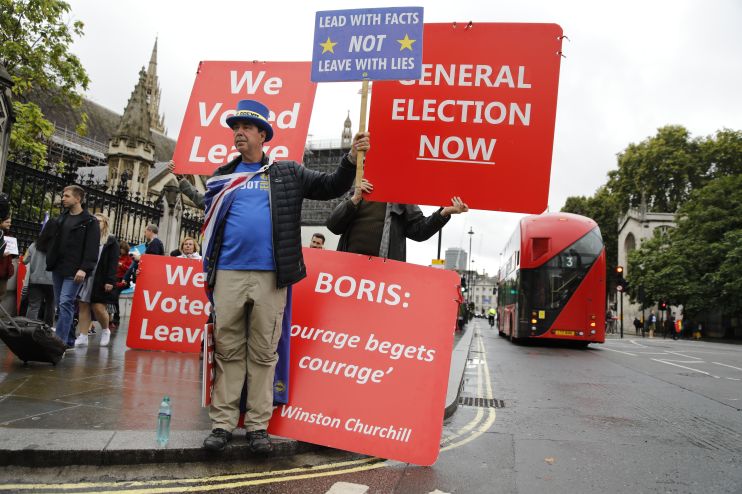It may look shambolic, but this is functioning democracy in action

Over the last three years, it has become fashionable to argue that the whole sorry Brexit saga has made the UK a laughing stock around the world.
A government in chaos, a parliament unable to decide which way is up, a country divided straight down the middle. All very messy, unkempt, and disorderly.
But messy and disorderly are inherent characteristics of a functioning democracy. Order can only be imposed on the innate entropy of democracy through authoritarianism or unaccountable technocracy.
The Brexit process is arguably the most important decision facing the UK in decades if not centuries. Contrary to much of the commentary, it’s not just about free-flowing trade and the economy. If it were, few would be so highly exercised by it.
Brexit is about the UK’s fundamental political orientation: whether it chooses to live by “European” values, or forges a different path; whether the UK’s interests are best served by political and strategic alignment with a European bloc, or by striking out on its own or aligning itself with the US; whether the UK wishes to steer the future of the EU bloc towards being a confederation of independent nation states with mixed economies, or has given up on that dream, on the grounds that statist elements that believe in a centrally-directed European superstate have won out.
Brexit rests on these big, difficult and sometimes abstract issues. It is therefore perfectly understandable, and indeed highly desirable, that different people will reach different conclusions and adopt different positions.
None of it excuses the aggressive language that has been used on all sides. None of it justifies the ensuing tribalism. But what we are seeing is British democracy red in tooth and claw.
We have a parliament that has repeatedly and successfully stood up to the executive, party whips who have been told to go whistle, MPs standing up for their convictions irrespective of their leadership – willing to resign the whip or have it withdrawn to hold out for what they believe in.
Our parliamentarians have been struggling to find a balance between their roles as informed decision-makers, as foot-soldiers for their parties, and as representatives of the views of their constituents – views that are not homogeneous, irrespective of which majority emerged in the referendum.
All of this has been open and transparent. It has engaged the electorate politically. The goings on in the House of Commons have become compelling viewing across the whole of Europe and beyond, and last week our Supreme Court took a starring role.
The importance of the Court’s decision must not be underestimated. Had it gone the other way, it would have implied that any government, of whatever shape or colour it may be in the future, can suspend parliamentary democracy at will and for as long as it wishes. It could rule without accountability. That way lies the road to potential dictatorship, usually under cover of the authoritarians’ favourite phrase – that they, and they alone, represent “the will of the people”.
And so it is time to take stock of what superficially looks like a Brexit-induced chaos. In spite (or maybe because) of the malleability of an uncodified constitution, British democracy has held up in the face of unprecedented tensions, and should serve as an example to others. It has proved itself flexible, and able to adapt to situations that no one could have predicted.
We have not seen violence on the streets, or people who disagree with the government’s position thrown in prison. Battles have been fought where, in a mature democracy, they belong: in parliament, in the media, and in the courts.
To those with an inherently neat mind, who prefer sterile efficiency to broad accountability, it may all look scruffy and shambolic. But that is exactly what democracy is.
Main image credit: Getty